This is not a PC: Microsoft debuts Windows Phone 7 Series
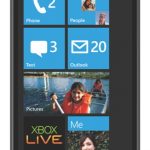
Without a doubt the biggest news from Mobile World Congress thus far, Microsoft unveiled Windows Phone 7 Series today. This is the big update to Microsoft's mobile environment which presents a more social, touchable, consumer-friendly user interface with new ways to interact with mobile data.
In short, the experience in Windows Phone 7 Series is almost nothing like the Windows Mobile experience, which was designed as a complement to the desktop PC.
Proof that online telemetry improves systems, from of all places, Chevrolet

Eventually we will all be able to keep track of everything we do, like Nicholas Felton, the man who relentlessly chronicles the minutiae of his own behavior.
We're not even that far off right now. Today, it's downright easy to keep a comprehensive record of our spending with online banking, our complete phone and Internet records, and our exposure on the Web in general, so we can check our behavior. It's the sort of thing almost inherent in being a geek...checking logs, watching records, and tweaking for optimum performance.
Samsung's first Bada phone to be shown next week?
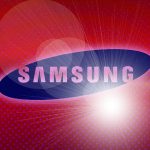
In November, Samsung launched its own open smartphone platform called Bada, which the company positioned as a replacement for Symbian, and eventually the rest of Samsung's proprietary non-smartphone operating systems.
Since that time, Bada has been keeping a pretty low profile. Samsung showed off screenshots of its UI and some quick videos of software (and Flash) running on the platform at a London event last December. The company also said the first Bada phone would be available in the first half of 2010.
Windows Phone rumors ramp up in advance of Mobile World Congress
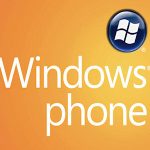
The Mobile World Congress in Barcelona next week looks like it will play host to the usual range of exciting announcements in the mobile devices and software field. Based on the continued appearance of enticing rumors, Microsoft's Windows Phone platform looks like it will be one of the main attractions this year.
At 9:00 A.M. Eastern Standard Time, CEO Steve Ballmer is expected host a press conference unveiling the latest Windows Mobile developments, which could be anything from the official announcement of Windows Mobile 6.5.3 to the launch of Xbox Live-enabled games on Windows Mobile to a so-called "Zune Phone."
Marvell launches the next 1 GHz smartphone processor
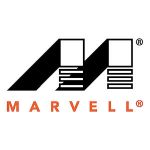
At CES 2010, chipmaker Marvell showed off its ARMADA 610 applications processor for tablets, mobile internet devices (MIDs), media players, and other portable connected devices. The impressive ARM v7-based chip runs at 1 GHz and is capable of encoding and decoding full 1080p HD at 30 fps, and 3D rendering up to 45 million triangles per second. At its CES booth, Marvell showed a single reference model tablet rendering 3D graphics while playing full HD video smoothly through HDMI on a 30" television. Marvell said the chip's display controller is actually capable of playing video on four simultaneous displays with 2k x 2k resolution.
Today, just ahead of Mobile World Congress, Marvell announced it will be showing off the next chip in the 600 series, called the ARMADA 618, which is a close relative of the 610 especially suited for smartphones.
TiVo teases something new with private event invites

Who says Apple is the only company that puts out enticing invitations? Today, TiVo sent out invites to a private March 2 event in New York City that simply reads, "Inventing the DVR was just a warmup," with no other hints as to what the event is for.
For a single statement, it's a pretty big one, considering TiVo popularized the viewing model that made linear broadcasting more or less obsolete.
Microsoft announces Office for Mac 2011: New UI, Web-based tools, no Entourage
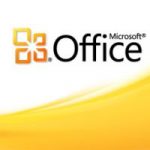
At Macworld 2010 today, Microsoft unveiled the latest version of its Office productivity suite for Mac OS, which brings a new UI design, new collaboration tools, and replaces Entourage with Outlook for Mac.
Microsoft today said the new look of Office for Mac is based on Office 2008 Elements Gallery, and combines the standard Mac menus with Office toolbars, so the design is peculiar to the Mac, but stays true to the Office ethic.
Shazam finally hooks up with Pandora and Last.fm

Music identification software Shazam is indispensable. When users hear a song they don't know playing in a commercial, over the radio, or on the PA at a club, and they want to know what the song is, all they have to do is fire up Shazam on their smartphone, let the app "hear" the song, and it identifies it.
As useful as it is, Shazam has kind of been a one-way street: It identifies (or "tags") the song and then links the user out to other services. For example, the user can then purchase the song, go to YouTube to watch related videos, or go to the artist's MySpace page, all where applicable. But up to now, the app ended there, and the list of songs a user has tagged didn't get used anywhere.
Facebook Chat is now accessible on popular instant messaging clients

Making good on a promise delivered just about one year ago, Facebook announced today that its popular chat feature can now be accessed through any Jabber (XMPP)-compatible desktop instant messaging software, including AIM, iChat, Pidgin, Adium, and Miranda.
Users can simply connect their Facebook account with their instant messaging client of choice and they can then chat with Facebook friends without having to stay logged into the social networking site.
Google drops a bomb: It's building its own fiber network

Google announced today that it is planning to build and test broadband networks in several trial deployments across the US which promise to be "100 times faster than what most Americans have access to today with 1 Gbps fiber-to-the-home connections."
A careful read of that line suggests that Google is promising 1 Gbps fiber, which is 100x faster than the average broadband user's transfer rate, as opposed to a 100 Gbps pipeline. The company says the service will reach 50,000 people initially, with a potential reach of up to 500,000, the company announced.
AT&T commits to LTE, names equipment partners
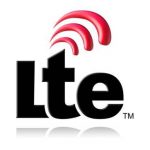
Almost exactly a year after Verizon Wireless named its LTE equipment partners, AT&T has done the same. And like Verizon, AT&T has chosen Swedish wireless technology provider Ericsson and French telecommunications company Alcatel-Lucent, to make the transition from 3G to LTE more streamlined.
Rather than start fresh and attempt to install all new hardware at its cell sites, AT&T is going for hardware that is easily upgradeable. All 3G equipment purchased from the Ericsson and Alcatel-Lucent this year will be easily convertible to LTE, AT&T said.
Certain to cause uproar, Opera shows off its browser for iPhone
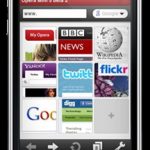
Prominent developers sometimes tease us with products made on the iPhone platform that have not yet been approved by Apple. Frequently it's because their applications face certain rejection; sometimes on the famous grounds of "duplicate functionality", sometimes for other reasons.
Mobile World Congress next week will be hosting the mother of all iPhone app teases: Opera Mini for iPhone.
Rhapsody to become an independent company

Now nearly a decade old, RealNetworks' online music service Rhapsody is going to be spun off into an independent company. The spin-off will mean that RealNetworks will no longer have operating control over the service, and it will have no single majority owner.
Currently, Rhapsody is a joint venture with RealNetworks and Viacom subsidiary MTV Networks, with real owning 51% of the equity of Rhapsody and Viacom owning 49%.
Google Buzz: Another attempt to harness the content firehose

Rather than create another new destination social network like Facebook, Twitter or Foursquare, Google today announced that it has added social networking and location-based features into Gmail, Google Profiles, and Google Maps with a new service called Google Buzz.
Late last week, rumors surfaced that Google was debuting a new "Social Gmail" this week, and that really is kind of what Buzz is. With it, you can post status updates and share links, photos, and location-based updates with your Gmail contacts, and the content being posted by your contacts is automatically ranked according to your interactions with that contact. Ultimately, it's a lot like FriendFeed but with a Google flavor.
Nvidia debuts new dynamically-switched graphics card technology

The idea behind notebooks with switchable graphics processors is that the most common tasks are handled by the lower power integrated GPU; but should the user need more complex graphics, a discrete graphics processor will be able to kick in to take care of the hard work.
It's been an option in certain notebooks for more than three years, and it has certainly grown more common as the technology has aged. But it has never quite been a perfect, on-demand solution. In the earliest switchable setups, the computer had to be rebooted for the swap to take place, and in later iterations, it required a physical switch to be thrown or sessions to be reset. and still others could turn on the discrete GPU, but not switch back to integrated once the change was made.
Tim's Bio
Tim Conneally was born into dumpster tech. His father was an ARPANET research pioneer and equipped his kids with discarded tech gear, second-hand musical instruments, and government issue foreign language instruction tapes. After years of building Frankenstein computers from rubbish and playing raucous music in clubs across the country (and briefly on MTV) Tim grew into an adult with deep, twisted roots and an eye on the future. He most passionately covers mobile technology, user interfaces and applications, the science and policy of the wireless world, and watching different technologies shrink and converge.
© 1998-2025 BetaNews, Inc. All Rights Reserved. About Us - Privacy Policy - Cookie Policy - Sitemap.
